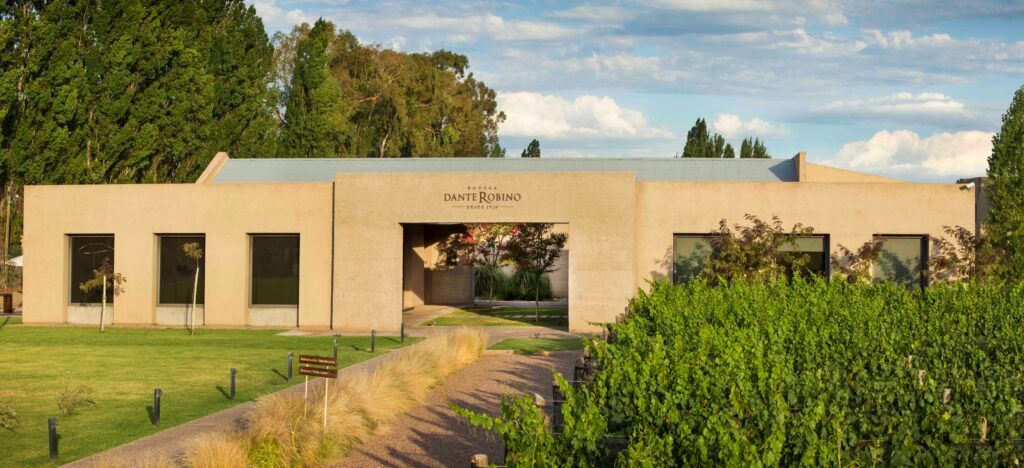“There are lots of solid quality brands out there, but we want to find ways to get closer to the consumer.” That’s how AB Inbev wants to – cautiously – step into the wine category, says Quilmes’ Paulina Tomasin.
ABInBev’s Dante Robino Winery in Argentina was first officially introduced to the international wine trade at Wine Paris & Vinexpo Paris in February. But you had to be in the know to realise it. Yes, it had a stand, but very little branding to let you know what it was about. Just a few bottles, a desk and some chairs. A pretty inauspicious way for a multinational drinks company to introduce yourself to the global wine industry.
But make no mistake, AB InBev is very serious about the wines it wants to make from the Dante Robino Winery that it bought through its Argentine subsidiary, Cervecería y Maltería Quilmes in 2020.
“We dream of becoming the top three Argentinian wine exporter in five years, which would mean increasing our exports by six times,” says Quilmes’ Paulina Tomasin.
It is, though, starting small, at least in terms of the usual production levels for its brands.
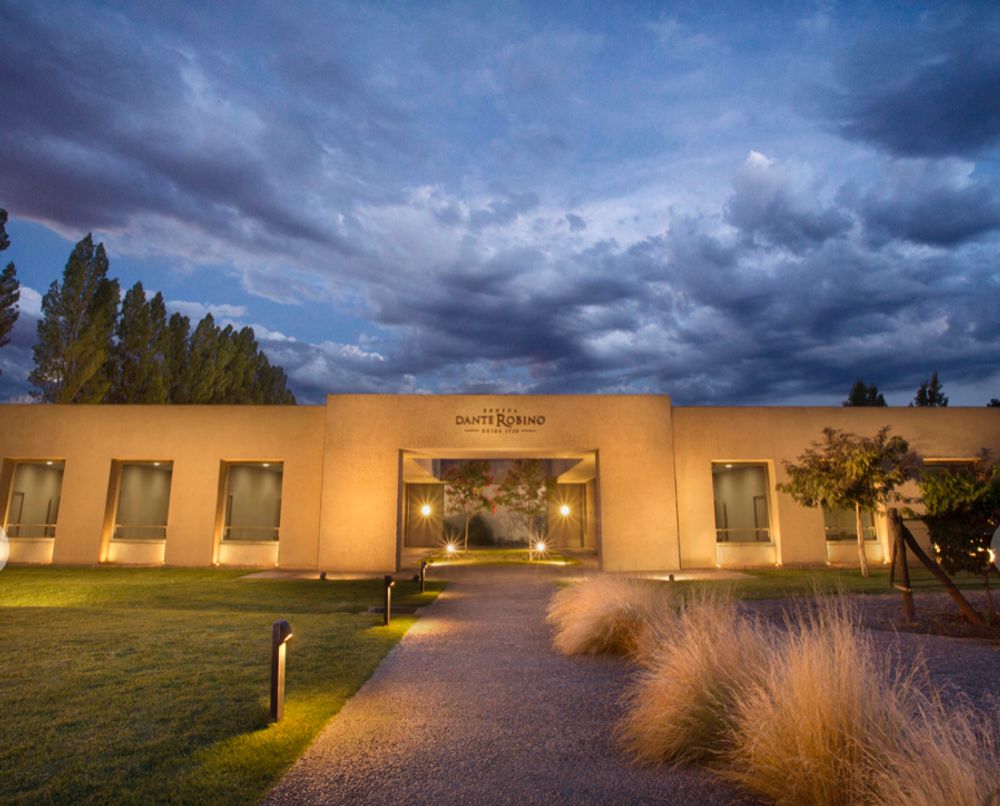
The Dante Robino winery is in the Luján de Cuyo in Mendoza
It is taking on an estate in the Perdriel area of Luján de Cuyo in Mendoza and a range of both still and sparkling wines that currently only has 1% market share in Argentina.
Crucially, though, ABInbev said the acquisition was “part of the company’s plan to better understand and study the wine segment and to continue with the growth of the company’s brand portfolio”.
You can read what you want into that statement, but the fact AB InBev has decided to make its first move into wine in this way, is one the wine industry as a whole needs to watch carefully.
It’s not as though this is some sort of nice hobby for it to have. But arguably more to do with declining beer sales around the world, and the need for a business of the scale of AB Inbev to be exploring all possibilities to create new revenues and attract different drinkers. Diversification is very much the name of the game for AB Inbev in all the markets it works in.
ABInbev strategy
Michel Doukeris, AB Inbev’s chief executive officer, gave a clue to where wine might sit in its future business when he recently set out the company’s strategy and need to adapt and change in a trading statement where he said: “We’ve launched many, many pilots and innovations. We’ve experimented, tested, and learned from our hits and misses. As a result, we are evolving from an outdated market maturity model to a consumer-first data- driven category expansion model.”
Before adding: “Developed markets where people are typically wealthier and older, and consumer trends are constantly evolving, require an innovative approach in the market and expansion into new incremental segments such as Beyond Beer.”
Sounds a lot like wine to me and the fact that wine is still a category of interest for a major drinks multinational is a vote of confidence for the sector considering how many of the major drinks companies have publicly looked to dispose of their wine arms – most notably Diageo.
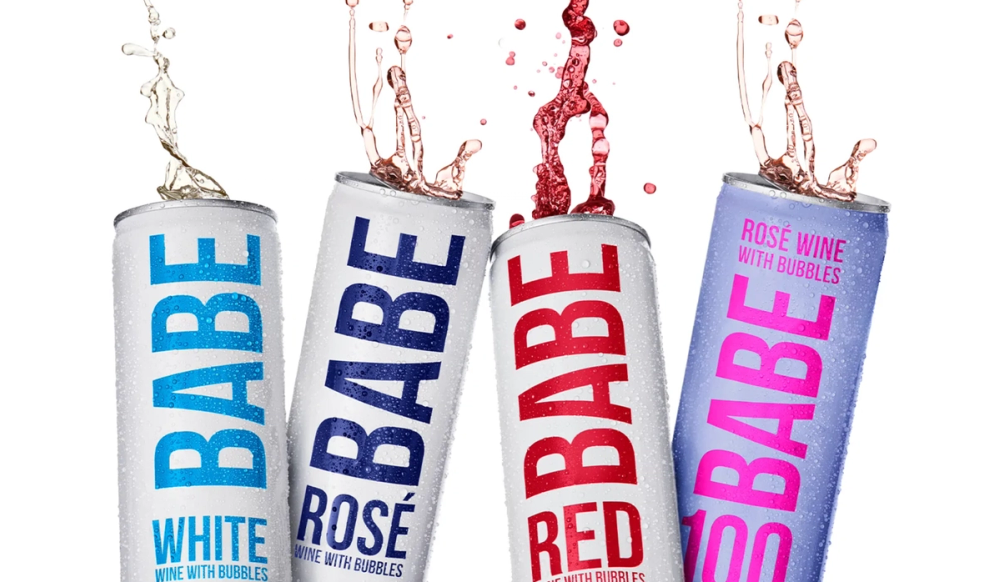
AB InBev has looked to develop a canned wine range called Babe
As well as the Argentine winery business AB InBev has also recently moved into canned wine, first with Babe Wine, and is reportedly working through its innovation and investment group, ZX Ventures, to help Quilmes introduce its own canned wine range in Argentina with a 130 story trial for its Blasfemia canned wine brand, according to Drinks Business.
In the US AB Inbev is working with the Wine Group to help produce some of its products, including MD 20/20 its fortified wine brand and has signed a distribution deal to handle its 101 North Californian wine range.
AB InBev is also a major backer of the C&C Group, owners of Bibendum and Matthew Clark, two of the UK’s biggest wine distributors, with its exclusive distribution and contract brewing agreements.
Argentina first
The acquisition of the Dante Robino winery is, though, insists, Tomasin, also very much an Argentine initiative driven by the needs of the Quilmes business to diversity its portfolio.
“This is a local AB InBev project,” she says. “Dante Robino Winery is a project meant for Argentina that is now looking to expand to the world independently, like any other Argentinean winery is.”
The deal saw all 74 staff retained, including head winemaker María Soledad Buenanueva. Its initial goal is to double the producer’s 1% local market share to 2% within the next two years.
Dante Robino sold 43 kohl in 2020 and 107 kohl in 2021 and is currently exporting 15% of its volumes to 20 countries.
The UK is very much a key market, says Tomasin, both in terms of sales, but also how it can better understand the demands and needs of the wider wine market. “From the UK we can then move market to market,” she says.
Building its name
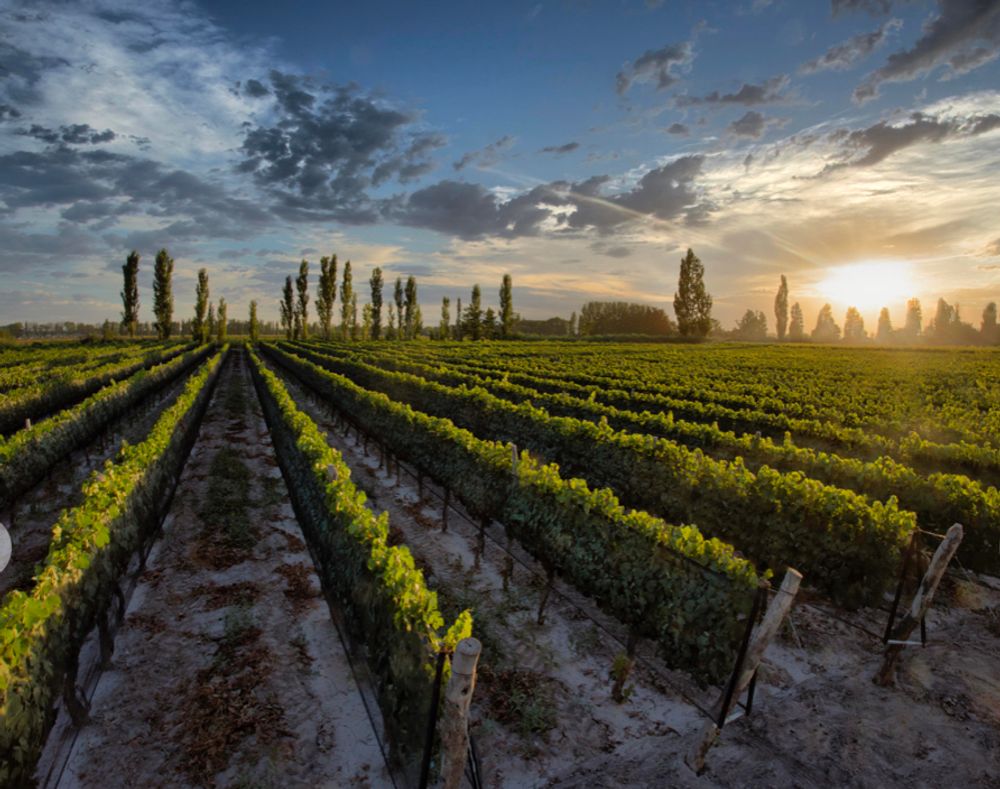
Dante Robino wants to develop premium wine for the main global wine export markets
Dante Robino has very much a premium wine strategy and wants to position its wines in the right channels working with the best placed distributors to help drive listings, but also with the ability to scale, she explains.
“We are putting feelers out in the market to see what is possible. We know a lot of importers have well thought through and established Argentine ranges. We want to see where we can offer something different.”
It will also come with some high expectations of its own. “We will be demanding of our distributor to justify the investment and to help make our winery better known. But the rewards are potentially huge.”
She says there is a real desire within the business to bring new innovation and dynamism to the premium wine category. “We want to more creative, a bit bolder. There are lots of solid quality brands out there, but we want to find ways to get closer to the consumer. What opportunities there are to do that with special limited editions.”
Clear ambitions
The company has set itself clear targets and goals it wants to achieve in the coming years.
Tomasin explains: “We are looking to build long term partnerships with leading global importers to achieve our goals. We have proved that with a good distribution network, we can create products and brands that are relevant for our consumers.”
She adds: “In our local market in Argentina, we went from the 57th biggest wine in sales to 11th in two years, multiplying our still wine volume by seven times. We accomplished this by having a solid distribution strategy combined with a close-to-consumer communication and marketing campaign. We renewed our image, changed our digital campaign and brand tone, built up the winery’s profile in the trade and developed an off-trade strategy.
“In Uruguay, where we also have distribution, the Dante Robino Winery has become the fifth biggest premium wine in only eight months, and Novecento is the number one wine brand.”
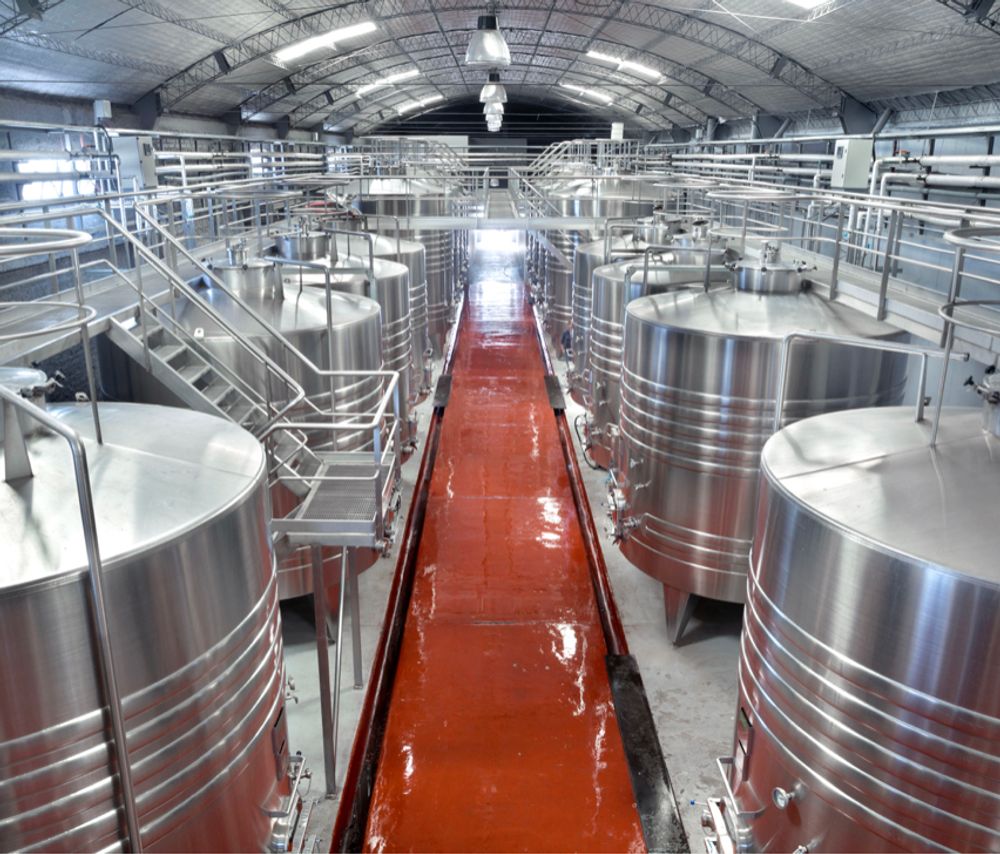
Dante Robino winery has the capacity to scale and build production both for domestic and international sales
She says its short term goal is to “prioritise the on trade and e-commerce channels”. “The on trade allows us to build the winery’s image and quality perception with consumers. The e-commerce channel enables us to learn from our consumers’ behaviour and develop targeted call-to-action digital promotions. In the long term, we expect to sell in the off trade as well, but we understand is a very competitive market in terms of price which mainly has tailored-made brands for chains, so it will not helps us enhance the winery’s image but it will deliver the volume and cash flow to pursue commercial actions.”
Understanding the consumer
A key part of its initial strategy will be to use digital media to get the brand in front of the right consumer and target audience. “We want to get the name of the winery out there, but we also want to understand what the consumer is looking for in wine.”
She adds: “The plan is to focus on digital and social media. We believe we have found a unique way to communicate as a close-to-consumer, down-to-earth winery that has an option for each price target and is not afraid to try different things. We are innovating with different types of products you would not expect a winery to develop, like vermouth and spritzer.”
She says its approach is best represented by a limited edition brand it introduced during the pandemic called LPQTP 2020 – translated as “F… you 2020” – a sparkling wine introduced to toast in New Year’s Eve.
“I believe it is the perfect example of how we want to target our main consumers. It went completely viral. It was launched in November 2020 and with a month and a half we, sold around 1,5 KHl in Argentina and 400 Hl abroad in six different countries – Spain, Uruguay, Chile, Paraguay, Mexico and Brazil.
“We area also piloting new packaging to target each consumption occasion: cans and bag-in-box. We believe consumers are looking for wines with different packaging depending on the occasion, mood and culture. We expect to cover most of our consumers’ needs as possible. We also have plans for traditional media (TV and radio), but due to the high investment they require, we will save those assets for when we have more volume and have already built some brand awareness.”
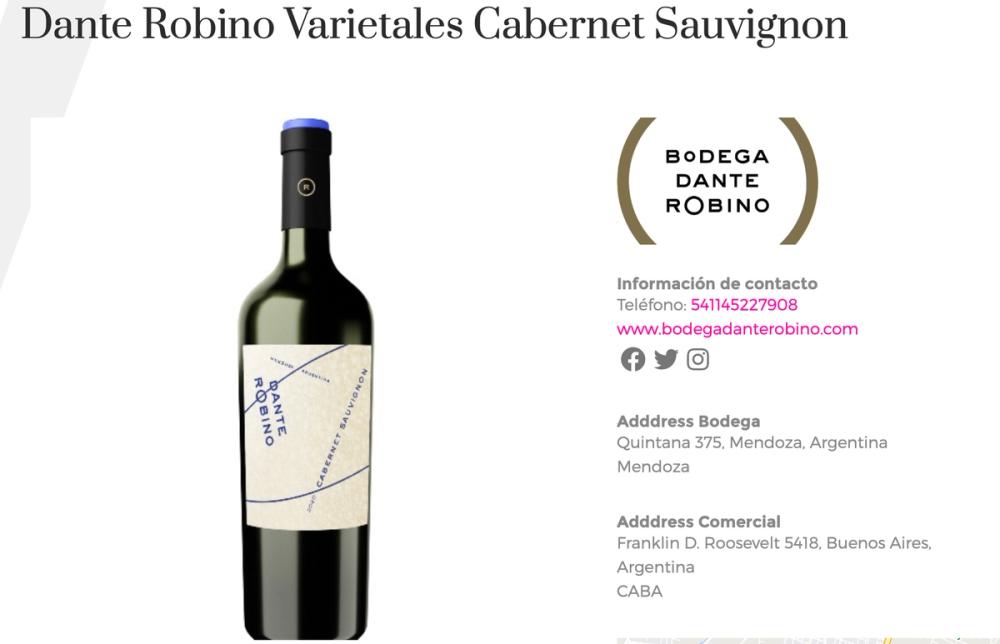
Dante Robino is looking to make a number of wines that can appeal to different demographic groups and consumer occasions
Domestically Dante Robino’s strategy is to make “wine less of a formal drinking occasion,” says Tomasin. “We want to make it less elite. More approachable and less formal. A drink you can have at all social occasions. This is also a global trend. We have to find a way to make it real for more consumers.”
It’s why it is looking to introduce a bag in box wine brand in Argentina to help open up wine to more everyday drinkers. “You need to tweak your product depending on your local consumer,” she says. “It’s not just about pushing the product you already have.”
She adds: “A major advantage of being part of ABInBev is how it is so consumer driven. We listen and learn all the time. We know some of our wines are fine as they are, but we have to understand the consumer more to know what’s right.”
Which could well mean introducing new brands and lines that it knows are going to be relevant to a key target consumer. “We also need to learn how to market the wine and be aware of whatever opportunities are out there.”
The range
Dante Robino’s main focus in exports is around its brands: Nave; Dante Robino Legado; and Gran Dante..
Tomasin says it looking to add a Sauvignon Blanc to Dante Robino Legado range next year. “We are also studying the development of organic and sustainable wines, which is the fastest growing market for wine and an area where consumers are asking for more and more information.”
She says it is an exciting time for everyone at the winery and they are committed to the ambitious plans and targets they have set themselves.
“We are also studying the development of organic and sustainable wines, which is the fastest growing market for wine and the style consumers are asking for more and more.”
She says in the short term its objective is to prioritise the on trade and e-commerce channels. She explains: “The on trade allows you to build the winery’s image and quality perception in consumers, and the e-commerce channel enables us to learn from our consumers’ behaviour and develop targeted call-to-action digital promotions.
“In the long term, we expect to sell in the off-trade as well, but we know it is very competitive market in terms of price which mainly has tailored-made brands for chains, so it will not helps us enhance the winery’s image but it will deliver the volume and cash flow to pursue commercial actions.”
She is though keen to stress Dante Robino Winery is a separate project meant for Argentina and is looking to “expand to the world independently, like any other Argentinean winery is”.
“We are not aware if AB InBev has a particular strategy for wine, but as a part of the group, we do carry AB InBev’s culture and mindset within the winery: we dream big,” she says.
